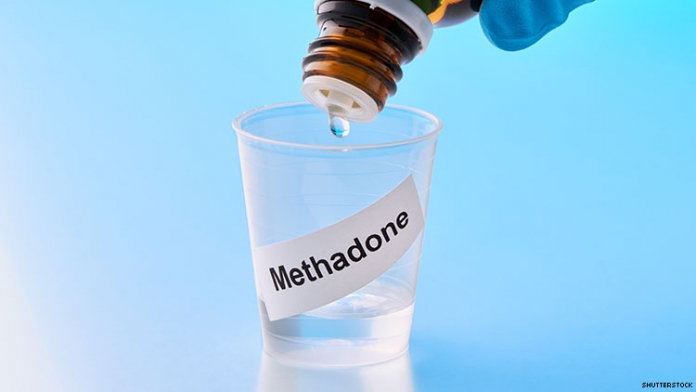 In simple words, methadone is a drug used for relieving pain. It is used for more severe cases like treating the withdrawal symptoms of people who are recovering from the addiction to morphine, heroin, etc. Methadone is a kind of drug known as opioids, and it is prescribed to patients suffering from other kinds of addiction because it is safer than other opioids. Methadone is considered the Medication-Assisted Treatment or MAT, and it is used to treat the effects of other opioids like heroin. In several rehab clinics in the UK like RehabHC, methadone is used for treating drug addiction.
In simple words, methadone is a drug used for relieving pain. It is used for more severe cases like treating the withdrawal symptoms of people who are recovering from the addiction to morphine, heroin, etc. Methadone is a kind of drug known as opioids, and it is prescribed to patients suffering from other kinds of addiction because it is safer than other opioids. Methadone is considered the Medication-Assisted Treatment or MAT, and it is used to treat the effects of other opioids like heroin. In several rehab clinics in the UK like RehabHC, methadone is used for treating drug addiction.Sometimes, people abuse methadone as a form addiction as well and have to be sent to rehab centers to get rid of methadone addiction. During pregnancy, methadone works better compared to other drugs, but what are the effects of methadone in pregnancy? Read on to know more.
How Using Methadone Affect Pregnancy?
Pregnancy is quite a delicate period where you have to be very careful. Therefore, any addiction can cause severe damage to you and your baby. If you take methadone during pregnancy, even as a treatment drug, it directly moves to the placenta. So, it is evident that methadone addiction will have an impact on the development of the baby. Although it is proven that methadone-based MAT is safer during pregnancy than any opioid prescription pills or heroin, too much consumption or addiction to it can cause neonatal abstinence syndrome.
As per the researches, it has been proven that methadone addiction can hamper baby growth. But, if a woman is already on methadone at the beginning of the pregnancy, she should not stop it without consulting the doctor. If a pregnant woman suddenly stops taking methadone if she was already on the dose, she may experience certain types of withdrawal syndromes, which can have ill effects on the baby. Besides, if you are already suffering from heart disease, electrolyte imbalance, breathing issues, liver or kidney diseases, thyroid, gall bladder, or pancreas issues, you should not take methadone as medicine.
Effects of Having Methadone during Pregnancy

There are certain side effects of using methadone during pregnancy; even if it is taken as directed, it can cause dry mouth. If a woman is suffering from methadone addiction, she may suffer from several other complications during pregnancy, like
- Sudden weight gain
- Headache
- Sore tongue
- Mood swings
- Problem in swallowing
- Changes in vision
- Urination problems
- Dizziness
- Stomach pain
- Trouble staying asleep
If you have any of these symptoms while having methadone during pregnancy, you should immediately consult your doctor.
How is Methadone Addiction Treated?
At the best rehab centers like RehabHC, methadone addiction is treated by expert doctors and other professionals. Though methadone is not that harmful like other opioids, any kind of addiction is not safe while you are pregnant. At the best rehab centers, the staff provides detox treatment and compassionate care to eliminate methadone addiction. They arrange a proper rehabilitation program where the patients can access state-of-the-art-medical care, support groups, parenting classes, physical health monitoring, and mental health counseling.
While treating methadone addiction, you may go through certain types of withdrawal symptoms. This means her body won’t work properly without taking methadone. Now, if a pregnant woman suddenly stops taking it, it can be risky for the mother and the baby. Here are some kinds of methadone withdrawal syndromes that are treated in the rehab centers-
- Yawning
- Restlessness
- Watery eyes
- Backache
- Anxiety
- Chills
- Insomnia
- Diarrhea
- Vomiting
- Abdominal cramping
The addict goes through a medical detox program at the rehab centers, perfect for removing methadone addiction. There are proficient rehab centers where you can find a customized treatment plan for pregnant women suffering from methadone addiction. You will get non-judgmental care and a supportive environment to eliminate the toxic effect of methadone at the upgraded rehab centers like Rehab Healthcare.
Here you get to know how methadone addiction affects pregnant women and how it is treated at the rehab centers. If you know someone addicted to heroin or any other kind of opioid, you can consult the best rehab center in your vicinity. Even if it is about methadone addiction, the woman has to go through detox program for her baby’s sake. Not only pregnant women but lactating mothers should also stay away from methadone addiction. Methadone is often used to treat other kinds of addiction, but if you have any side effects, consult your doctor immediately.









